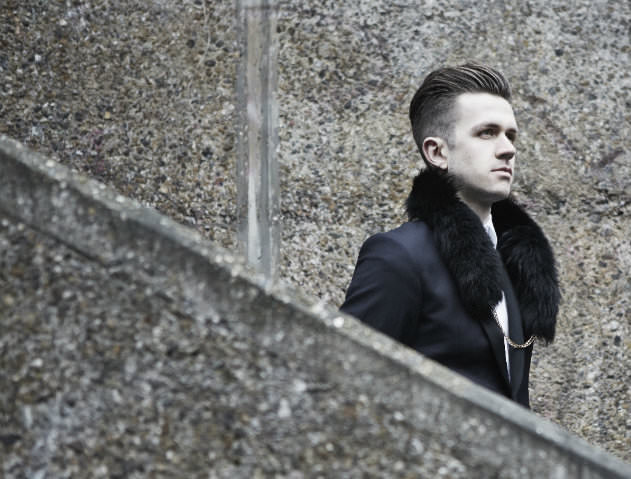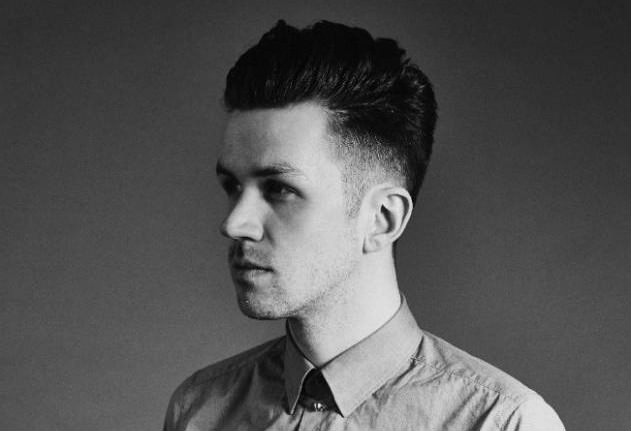Fresh after the release of his first full-length, Sleep of Reason, we caught up with Raffertie to discuss the genrification of music, his love of the London scene and his plans for a foray into film.
Classically trained in Composition at the Birmingham Conservatoire, Raffertie aka Benjamin Stefanski was capturing the attention of esteemed curators and big producers, as well as racking up performance slots at Fabric, Space and Glastonbury, long before he graduated. A couple of years down the line and things haven’t slowed down – we meet him as the artist behind acclaimed LP Sleep of Reason and the co-founder of Super Recordings, home to releases from the likes of Py, AlunaGeorge and Bondax.
Attack: I hear you’ve been back in the studio… so soon after the Sleep of Reason release. How did you find the hype and reactions after releasing your first full length? Were there any surprises?
Raffertie: I haven’t really stopped writing since finishing the album! I didn’t really know what to expect to be honest, or exactly how the album would be received. I finished it, I was really happy with it and I suppose because I didn’t have any expectations it’s been really great to hear all the positive reviews that it’s had. It’s been wonderful, really wonderful.
I guess you’re not new to releasing in general so it’s not as daunting.
Yeah, I’ve done a few singles prior to releasing the album, but it being my debut album it was always a bit of a ‘heart in your mouth’ feeling seeing how it would be received. Luckily it’s been quite positive.
A lot of people have described your work as ‘experimental electronic’ – how do you think your musical training equipped you for that sonic experimentation?
I view all music as one thing. I know a lot of people want to categorise, genrifying everything. I’m not sure genrifying is actually a word! What I did at the Conservatoire and the various things that I learned, they all kind of feed into what I’m doing now and it broadens my view of music, and electronic music. I think the training certainly had an influence but it’s hard to pin down what that influence is other than feeling like it has broadened my perception of music. I think it’s inherent that the two feed off each other.
Your musical training has been so wide – with everything at your fingertips what was it about electronic that ticked the boxes?
I really like the immediacy that electronic music gives you; working with ensembles and orchestras is a much longer process. But that itself can be fun, it’s an interesting thing to do. I’m actually coming back around to working more with live instrumentalists and slightly larger ensembles, I’ve got a few ideas for things in the future around that. What initially grabbed me about electronic is being able to imagine a sound and then working through that sound and it coming back to me within about five minutes of me thinking of it. I love being able to create things that quickly.
I view all music as one thing. I know a lot of people want to categorise, genrifying everything.
You have quite a lot of live instruments on the album…
Yeah, certainly more so than in previous releases. The guitar’s a big feature of a number of tracks, I used piano quite a lot and there were a few little string interludes. I wanted to create more of a natural feeling to the album than some of my previous releases. I also always thought about it with a view to performing it as a live show with a live band so that fed into my whole working process. But there is still that predominantly electronic undertone.
So your studio must be shaping up quite nicely?
I think studio is a bit of a grand term for it! It’s a little room, it’s nice, I’ve got a few little choice bits of equipment. I’m always on the lookout for new pieces. I’ve been recording quite a lot of found sounds; feet clattering on different surfaces, cars going by. I’m gradually collecting a bank of those sounds and layering them under high production and real instruments, just trying to create new textures and new sounds.
You’ve mentioned before that you like using voice texturally rather than as a focal point, which you can definitely see in tracks like ‘Undertow’. That said, others, like ‘Build Me Up’ do have a strong melodic or compositional structure.
Sure. I like different approaches; I felt that one approach suited one track better than another. The album in itself was kind of about exploring those territories, to a degree probably finding out what works best. It’s been really interesting reading the reviews and how people have interpreted the different songs, some people are bigger fans of the tracks that my voice hasn’t been so clear in and other people prefer the more profoundly song-based structure. For me it was about trying out those different approaches and seeing what works best for me, and for my voice.
Did you feel more personally connected to the album having your voice on it?
Definitely, it felt a bit more sincere. When I first started doing the album I had this long list of people I wanted to work with, various vocalists. But I always had the idea that I wanted to do the live set and by extension I realised that trying to get all of those people in one place at one time would be a bit of a nightmare, so I started experimenting more with my own voice. It just felt a bit more honest and upfront, and more personal to me.

